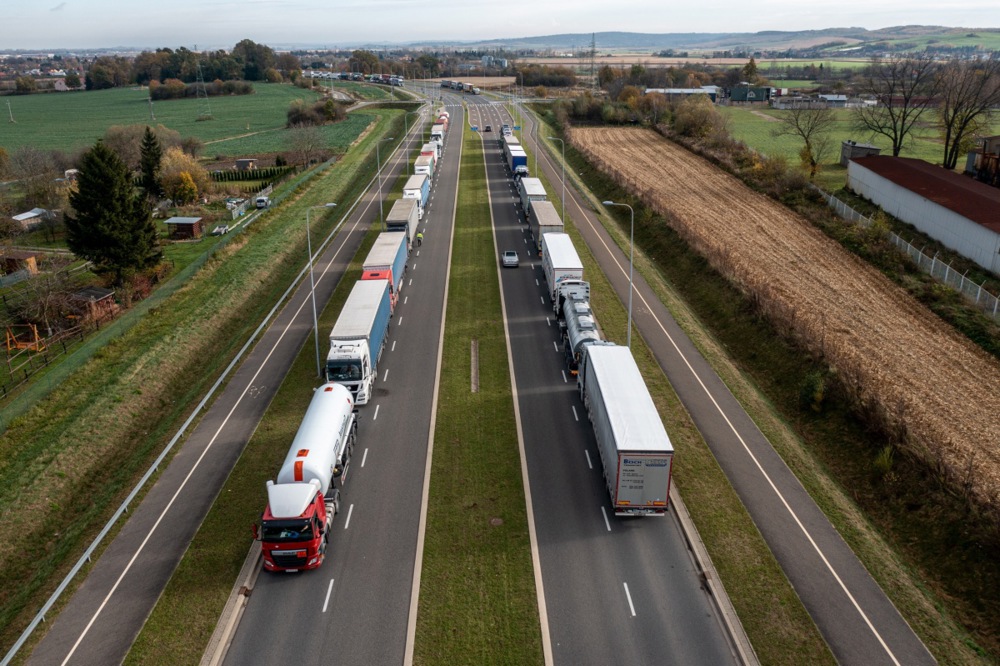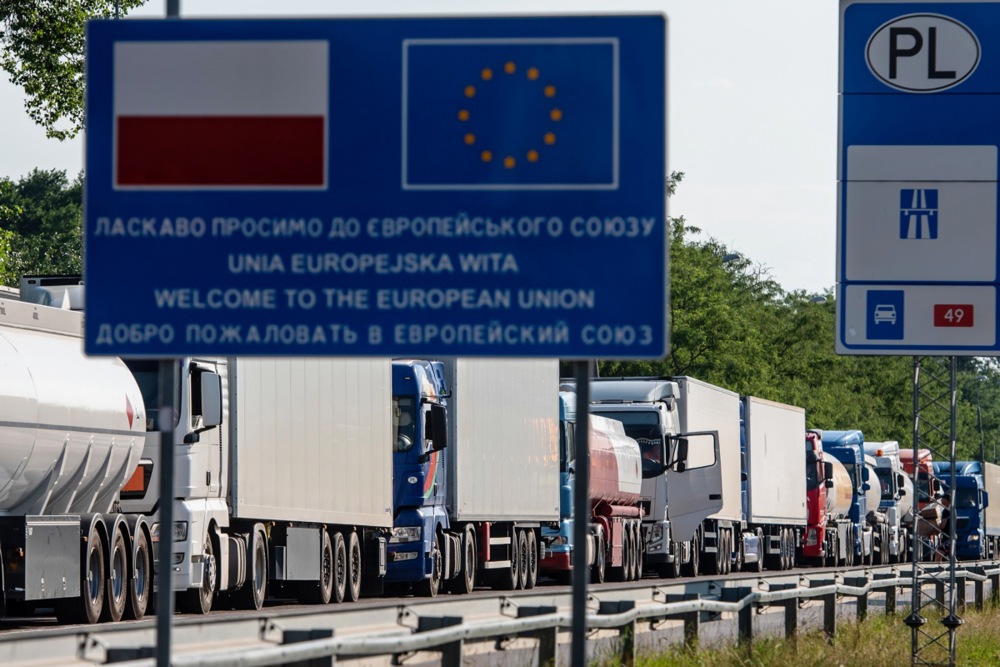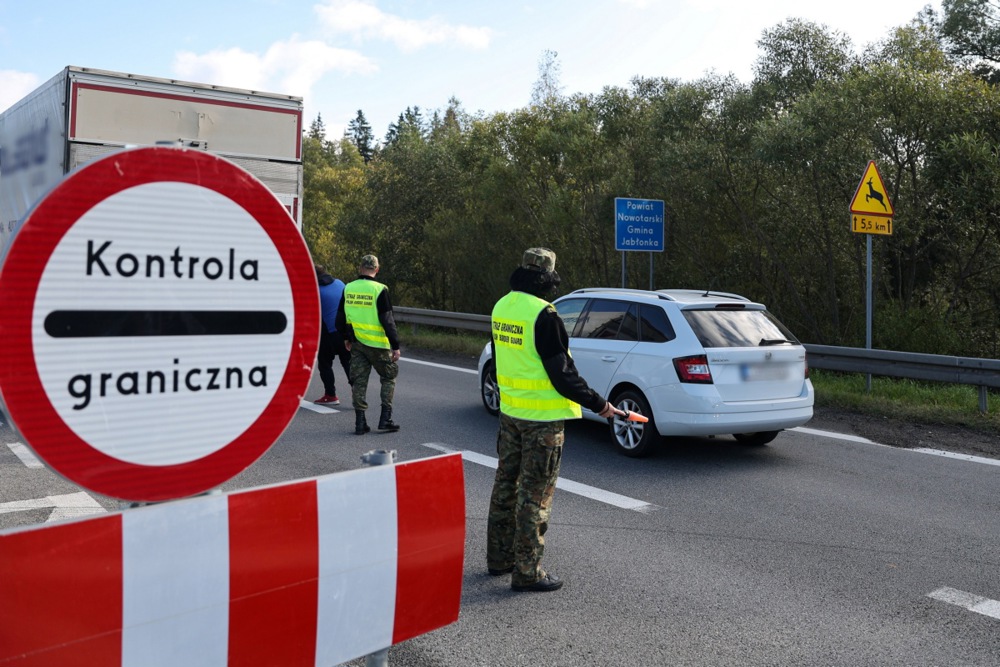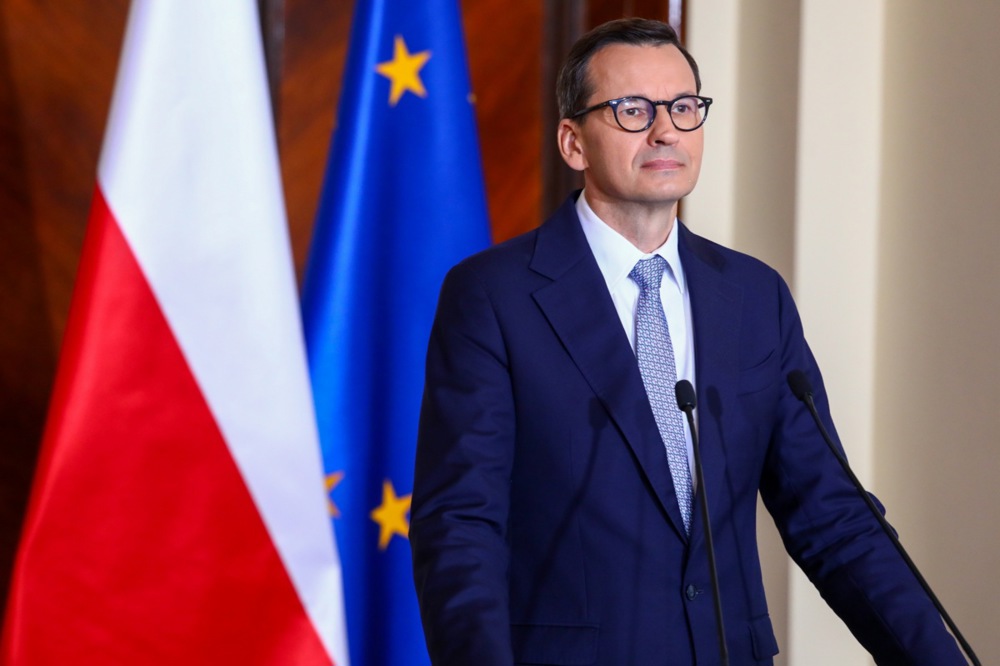Weeks of road blockades by Polish truckers protesting at the border will reduce Ukraine’s overall imports by about a fifth in November, and could cost Kyiv one percentage point of GDP growth if they drag on, a senior Ukrainian official said.
European Union member Poland is locked in a power transition following an October 15 election, complicating talks to end protests by hauliers who say Ukrainians have muscled them out of their own market, using wartime changes to permit regulations.
Thousands of trucks have been backed up at the border because of the protests, which began blocking trucks carrying commercial goods on November 6.
The Polish hauliers’ central demand is to stop Ukrainian truckers having permit-free access to the EU, something that Kyiv and Brussels say is impossible.
“The disruption is very clear. It’s a sharp decrease; it’s like one-fifth of our monthly imports are stuck at the border,” Taras Kachka, Ukraine’s trade representative and deputy economy minister, told Reuters in an interview.
He cited unpublished government data showing Ukraine imported €3.48 billion worth of goods and products in the first 26 days of November, down from €4.77 billion in all of October.
The figures show the extent of the damage the protests are doing to Ukraine’s economy, which contracted by nearly a third last year after Russia’s invasion.
Kachka said the government was trying to minimise harm and would invest in alternative export routes if it came to it – not an easy task.
“The scale of the challenge is big. I agree with people who say it might cost one per cent GDP growth,” he said.
PRICES RISE
Road exports from Ukraine are critically important because of Russia’s wartime attempts to blockade the Black Sea, once Ukraine’s main export route.
Goods through Poland usually make up 50 per cent of Ukraine’s road exports, but truckers have blocked four of eight border crossings, including the largest. Ukraine also borders Slovakia, Hungary, Romania and Moldova to the west.
“The authorities have a couple of weeks, but if it’s for months, they may need to revise (down) growth forecasts for the economy. Maybe by 0.5 per cent, one per cent, but that’s a significant amount,” said Vitaliy Vavryshchuk, an analyst at Ukraine’s ICU investment house.
Ukrainian officials say lower supplies have driven up prices of some goods, with liquefied petroleum gas (LPG) – used by about 1 million motorists in Ukraine – rising 30 per cent.
First deputy farm minister Taras Vysotskiy said lower supplies of meat and dairy items had driven prices of such goods up five per cent. Prices for some food items could rise ten per cent, he said in televised comments.
Deputy Infrastructure Minister Serhiy Derkach told Reuters that talks between Ukraine, Poland and the EU appeared to be at a “stalemate” as protesters want a permit system reintroduced for Ukrainian road transport entering the EU. The permit system was first lifted under an agreement signed in June 2022, and is suspended until July 2024.
“The key issue is to convince the protesters that we can’t do something about permits right now, so give us some concrete demands besides permits and we will talk,” Derkach said.
Jan Buczek, head of Poland’s main trucker business association, said Kyiv was showing no readiness to compromise and was creating obstacles for EU truckers operating in Ukraine.
He said Ukrainian hauliers were illegally using the permit-free system to operate in the EU, and not just move goods in and out of Ukraine, creating a cheaper workforce than Poland’s hauliers.
Ukraine’s system of electronic queuing for crossing the border was being applied uniformly to fully loaded EU trucks as well as empty ones, causing long waiting times for the latter, he said.
POLISH POLITICAL TRANSITION
The Polish truckers say they will continue protesting until their demands are met, and want more engagement from politicians from Poland’s main political parties.
Poland’s election ended almost a decade of conservative rule, appearing to pave the way for a government under pro-EU former premier Donald Tusk. But the president has sworn in a government from the incumbent Law and Justice party that lacks a parliamentary majority and is not expected to last long.
Ukraine’s branch of Germany’s Kromberg and Schubert, which produces automobile cables for European carmakers, is among companies facing problems. Though it is using alternative routes, other crossings are also congested, with a 12-day wait at the border. Deliveries are taking much longer than usual.
“The increasing cost of logistics definitely makes us unprofitable,” said Olena Makarchuk, head of logistics at the company’s branch in Ukraine’s Zhytomyr region.
Kachka said Ukrainian exports by truck over the first 26 days of November were €426 million, after €563 million in October.
The Federation of Employers of Ukraine, an industry lobby group, has estimated direct losses to the economy at around €400 million.





